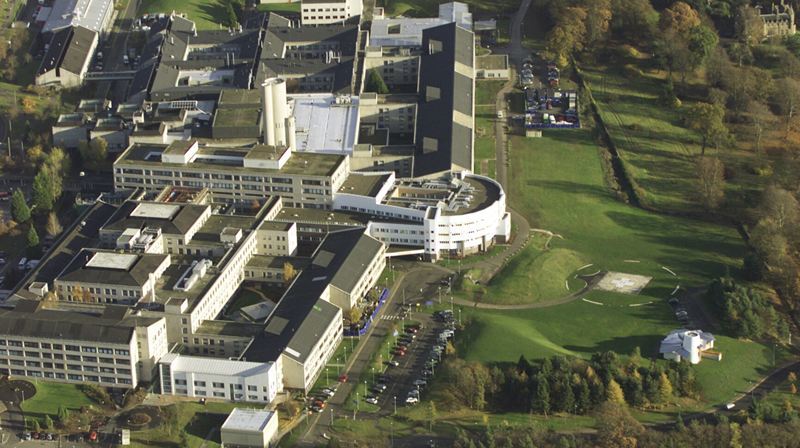A test newly available at Dundee’s Ninewells Hospital has slashed waiting times for diagnosis of tuberculosis from several weeks to just two hours.
Doctors can now confirm almost immediately whether patients have the infectious disease and whether they are resistant to the main drug used to treat it.
Dr Tony France, the physician in charge of Tayside’s tuberculosis service, said that until recently a patient suspected of having infectious TB was admitted to an isolation room in the infectious diseases ward at Ninewells.
They would be treated as if they had the disease because it could take several weeks to get results on previous tests.
“The laboratory now has a new testing kit which gives us an answer on the spit patients cough up within about two hours,” said Dr France.
“That will tell us whether a patient has got TB and also whether they have got resistance to the number one drug we use for treating it.
“Rifampizin is the key drug in all TB treatment regimes and if there is resistance to that, you are in trouble.”
Between 30 and 40 new cases of TB are treated in Tayside each year, often people who have travelled to India or Sub Saharan Africa where the disease is far more prevalent than in the UK.
In addition, among the eastern European community there is a legacy of TB from the former Soviet Bloc countries, where TB drugs were not always available and prisons were a breeding ground for the infection.
“The overall Scottish figures for TB have been in decline for probably a century but they have begun to level out,” said Dr France.
“There is concern how it might expand in future, particularly in the big cities.”
In London, Manchester and Birmingham there are large populations with family connections in the countries where TB is prevalent.
“We are quite lucky in Tayside,” said Dr France. “Our TB numbers are relatively small compared to other parts of the UK.
“We find it in some people who have families originating from the Indian sub continent.
“We have a lot of folk from that background who live and work in Tayside and annually they go back home to visit relatives.
“The big worry is in the big cities London, Birmingham and Manchester.
“There is concern about what is going on there and imported cases with drug resistance are really quite challenging.
“We feel fairly confident in Tayside we can isolate people with potentially infectious TB and get an accurate diagnosis , including drug resistance tests, in a matter of hours rather than weeks.”
The Scottish Government announced an action plan to better treat and reduce the number of cases of TB on Monday.
Public health minister Shona Robison said, “Many people think of tuberculosis as a disease of yesteryear but that’s no longer true.
“In recent years we have started to see a small but important increase in the incidence of TB.
“Scotland has played a significant part in tackling TB in the past and this action plan aims to address the situation we face now.
“There are various reasons why the number of cases may be increasing including the emergence of drug resistant strains, the continued prevalence of HIV and increased movement of people between countries.
“The action plan will ensure we adopt a comprehensive approach to tackling TB from surveillance and diagnosis through to effective treatment and public health services.
“By doing this, we are optimistic that we can stabilise the incidence of TB in Scotland and significantly reduce the burden of ill-health caused by this serious disease.”
